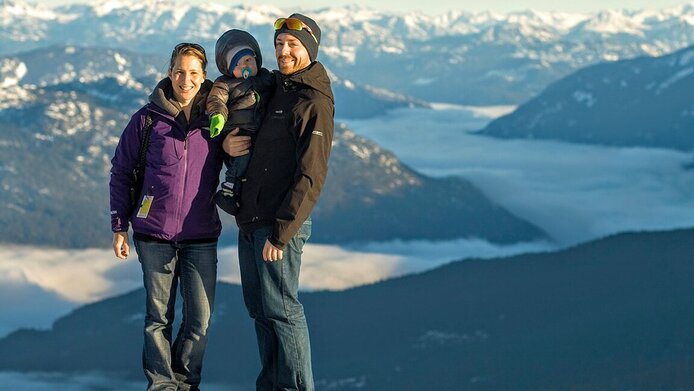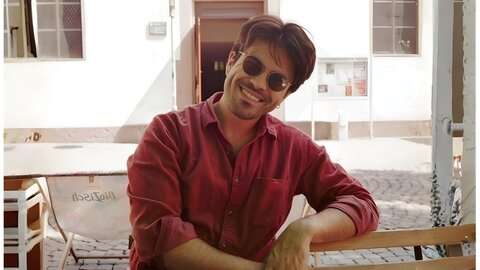Diversity in Vancouver

Until I wrote my doctoral thesis about the synthesis of bacterial carbohydrates at the University of Natural Resources and Life Sciences Vienna, my contact with carbohydrates was limited mainly to cooking pasta or rice and sweetening coffee. I took some time to realise the fascination and significance of this class of substance, but I now feel that many ground-breaking discoveries can be expected in this field. The importance of carbohydrates may be nicely illustrated by the example of red blood cells and the fact that only minute differences in the sugar structures cell surface determine an individual’s blood group. Unfortunately, access to these complex structures is often enabled only by time-consuming processes of synthesis.
In a lecture, a colleague once likened this undertaking to hand-knotting a very expensive and elegant carpet, and, as exciting and challenging this may be, I soon realised that enzymes are indispensable in this field because of their efficiency in carpet knotting. This holds particularly true if you want to modify this class of substance on a larger scale and make it available for therapeutic applications.
Withers Lab
As I absolutely wanted to acquire more expertise in this field, I was looking for a leading light in this area for my postdoc period, wherever in the world that person might reside. This is how I found Professor Steven Withers at the University of British Columbia. The fact that it was Vancouver and thus a city that permanently competes with Vienna for the title of the world’s most liveable city made it easier for me to put up with leaving my home town, which is always a little painful.
Vibrant campus life
The possibility to live on a campus that is the size of a small town greatly facilitated reconciling work and family life, even though that can still be a challenge. Campus life is very lively and teeming with after-work opportunities to learn something new, attend exciting lectures or classes and generally grow and develop in a very intercultural but also competitive environment. Having all this within a modest perimeter makes it easier to venture out and establish new contacts, an opportunity which has already resulted in some interesting co-operation projects. The high degree of interdisciplinary interaction between research groups and the ensuing complexity of projects, but also the greatly diverse cultural backgrounds of the people involved, was quite a challenge initially. By now, however, I appreciate it as much as I love poutine (French fries topped with gravy and cheese) or root beer, the latter being, people tell me, something you either love or hate.
Something for everyone
A very green and multi-faceted city, Vancouver harbours many contrasts: “Manhattan with mountains” – as the New York Times once dubbed it. The imposing skyscrapers in downtown Vancouver are next-door neighbours to numerous small ports. In one day you can combine skiing in Whistler or Cypress Hill with a relaxing evening at the beach in English Bay or Kitsilano. If you have a hankering for solitude, Vancouver is the ideal starting point for travels to Alaska or even further north.
Taking the step to go abroad was certainly the best decision in my career so far and constitutes an incredibly positive and educational experience. The generously endowed Schrödinger Fellowship has immensely facilitated this step, and perhaps made it possible in the first place. Now, after almost two years abroad, I am looking forward to going back home, taking with me a great number of positive experiences, ideas, acquired techniques and new friendships. I can only recommend to anybody interested in such a stay to take heart and venture abroad, getting to know another city, its inhabitants and universities.





